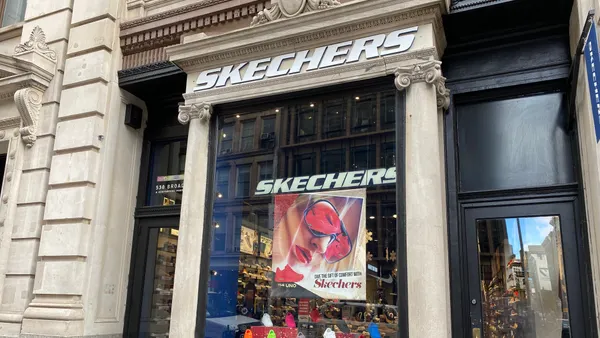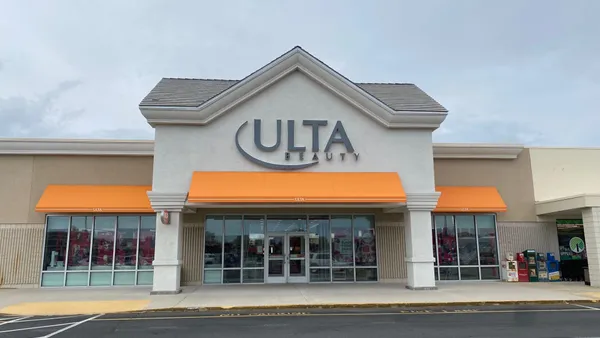Dive Brief:
- Creditors of RadioShack alleged in a recent lawsuit that Sprint used confidential information from their in-store partnership, forged amid RadioShack’s 2015 bankruptcy and reorganization, to open its own competing mobile phone stores, according to Reuters.
- A Sprint spokesperson told Retail Dive in a statement, "We’re disappointed the creditors’ committee took this action, and we expect to defend the matter vigorously." RadioShack declined requests for comment from Retail Dive.
- The lawsuit also accuses Sprint of failing to make good on obligations to provide inventory that were part of the deal, according to Reuters. RadioShack creditors say Sprint’s actions led to nearly 6,000 lost jobs at the twice-bankrupt electronics retailer. The suit asks for $500 million in damages.
Dive Insight:
RadioShack placed blame on Sprint, but regardless of who did what during their partnership to co-brand stores, the recent lawsuit highlights the failure of RadioShack’s 2015 restructuring plan. The two retailers are still bound together. Earlier this year, near the time of its second bankruptcy filing in 24 months, the electronics retailer was reportedly working with Sprint to evaluate its options for the remaining store fleet.
RadioShack emerged from bankruptcy two years ago as a private company, owned by hedge fund Standard General. At the time, the $160 million deal saved 7,500 jobs and around 1,700 stores (about half of RadioShack’s footprint at the time).
The deal with Sprint was supposed to give RadioShack a lifeline and mobile products inventory while providing Sprint access to RadioShack’s broad real estate footprint and well-known electronics name. It was key to the restructuring plan working, but the two companies’ tattered relationship today is a tale of synergies gone wrong.
RadioShack, a brand once synonymous with do-it-yourself electronics retail, stumbled as rivals like Apple and Amazon redefined the market, transforming consumer behaviors, interests and expectations. Following years of declining sales, failed strategic shifts and management issues, RadioShack filed for Chapter 11 protection in February 2015, with immediate plans to close 1,800 stores.
Last year, newly arrived RadioShack CEO Dene Rogers promised a new business model for the once iconic tech retailer based on omnichannel retail and e-commerce. But its rebrand and partnership with Sprint failed to gain traction in a market increasingly dominated by Amazon, which has grabbed massive market share in peripherals and batteries. In an era when many fewer hardware nerds build their own PCs and stereo systems, Radioshack is still struggling to keep up with business from mobile providers and online players.
RadioShack is just one of a handful of retailers with the dubious distinction of having made their second trip to bankruptcy court recently. The list also includes American Apparel, Wet Seal and Eastern Outfitters.
Debtwire legal analyst Joshua Friedman wrote in a June report emailed to Retail Dive that retailers face numerous challenges in executing successful reorganizations in bankruptcy, among them a short turn-around time to evaluate their leases, the boom-and-bust seasonal cycle of retail, and the need to secure sufficient inventory and liquidity to keep operating. Friedman points out that in 2016 and 2017, there have been only six retail reorganizations in bankruptcy, compared to 30 cases of acquisitions and liquidations.














